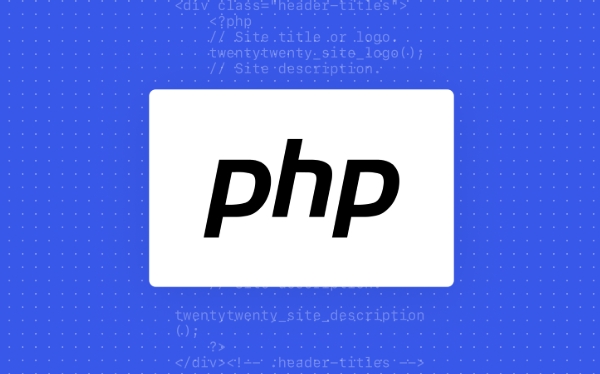 Backend Development
Backend Development
 PHP Tutorial
PHP Tutorial
 Unlocking Peak PHP Performance: Configuring OPcache and JIT Compilation
Unlocking Peak PHP Performance: Configuring OPcache and JIT Compilation
Unlocking Peak PHP Performance: Configuring OPcache and JIT Compilation
Jul 24, 2025 pm 09:58 PMOPcache and JIT are the core tools for PHP 8.0 performance optimization. Correct configuration can significantly improve execution efficiency; 1. Enable OPcache and set opcache.enable=1, opcache.memory_consumption=192, opcache.max_accelerated_files=20000, opcache.validate_timestamps=0 to implement opcode caching and reduce parsing overhead; 2. Configure JIT to enable trace JIT mode through opcache.jit_buffer_size=256M and opcache.jit=1254 to optimize CPU-intensive tasks; 3. Use opcache.preload to specify preload files, and load common classes to shared memory at PHP startup to eliminate duplicate load overhead; 4. Verify the cache status through opcache_get_status() or monitoring tool and adjust the parameters in combination with the actual pressure measurement; 5. The production environment needs to disable timestamp verification and reset OPcache in conjunction with the deployment process, and at the same time combine database optimization and cache strategies to achieve overall performance improvement.

PHP performance isn't just about writing clean code — it's also about leveraging the right runtime optimizations. Two of the most powerful tools at your disposal in modern PHP (especially PHP 8.0 ) are OPcache and JIT (Just-In-Time) compilation . When properly configured, they can dramatically reduce execution time and server load. Here's how to set them up for peak performance.

What OPcache Does (And Why It Matters)
Every time a PHP script runs, the PHP engine parses the human-readable code into opcodes — low-level instructions it can execute. Without OPcache, this parsing happens on every request, which is wasteful for code that doesn't change.
OPcache stores these compiled opcodes in shared memory , so subsequent requests skip the parsing and compilation steps entirely. This results in faster response times and reduced CPU usage.

Key OPcache Settings to Tune
Make these changes in your php.ini file:
; Enable OPcache opcache.enable=1 ; Enable OPcache for the CLI (useful for testing, but disable in production if not needed) opcache.enable_cli=1 ; Memory allocated for opcode storage (64MB–256MB depending on app size) opcache.memory_consumption=192 ; Maximum number of files that can be stored in the cache opcache.max_accelerated_files=20000 ; How often to check for script changes (set to 0 in production for max performance) opcache.validate_timestamps=0 ; Use a fast hash algorithm for faster looksups opcache.fast_shutdown=1 ; Preload PHP files (PHP 8.0) — more on this below opcache.preload=/path/to/your/preload.php
?? Note: Setting
opcache.validate_timestamps=0means PHP won't check for file changes. You must manually reset OPcache (viaopcache_reset()or restarting PHP-FPM) after deploying new code.
Understanding JIT: Beyond Opcode Caching
While OPcache speeds up opcode reuse, JIT goes further by compiling frequently executed PHP code directly into native machine code. This can significantly speed up CPU-intensive tasks (eg, math operations, loops), though it has less impact on typical web apps dominated by I/O (database, API calls).
JIT was introduced in PHP 8.0 and works best with the Tracing JIT mode.
Configuring JIT in PHP
Add these settings to php.ini :
; Enable JIT opcache.jit_buffer_size=256M ; JIT configuration (recommended for most apps) opcache.jit=1254 ; Ensure OPcache is on and large file support is enabled opcache.file_cache=""
? What does
opcache.jit=1254means?
It's a bitmask:
1= General optimization2= Context-based optimization5= Level 5 (tracing JIT, best for loops)4= Use return type info
So 1254 enables tracing JIT with type inference — ideal for performance.
Use Preloading to Go Even Faster (PHP 8.0)
Preloading allows PHP to load and compile certain classes into shared memory at startup, so they're instantly available for every request.
Create a preload.php file:
<?php
// preload.php
$files = [
__DIR__ . '/vendor/autoload.php',
__DIR__ . '/app/Services/Calculator.php',
// Add commonly used classes
];
foreach ($files as $file) {
if (file_exists($file)) {
opcache_compile_file($file);
}
} Then reference it in php.ini :
opcache.preload=/var/www/preload.php
? Tip: Preloading
autoload.phpcan eliminate autoloader overhead entirely.
Monitoring and Validation
After configuration, verify everything works:
Check OPcache status with
opcache_get_status():<?php print_r(opcache_get_status()); ?>
Look for non-zero
opcache.memory_usageandinterned_strings_usage.-
Use tools like:
- OPcache GUI – visual dashboard
-
php -i | grep opcache– CLI check - Monitoring in New Relic or Datadog (if available)
Test performance with real-world benchmarks (eg, using
abork6) before and after.- Never enable
validate_timestampsin production — rely on deployment scripts to restart PHP-FPM or callopcache_reset(). - Size
memory_consumptionandmax_accelerated_filesbased on your codebase. Monitor cache fullness viaopcache_get_status()['cache_full']. - JIT shines in compute-heavy scripts — don't expect 10x gains on simple CRUD apps.
- Combine with other optimizations : fast backends (Redis), efficient DB queries, and proper indexing.
Final Tips for Production
Basically, OPcache gives you a solid performance foundation, while JIT and preloading add advanced optimizations. The config isn't one-size-fits-all, but starting with the settings above will get you 90% of the way. Tweak, monitor, and iterate.
The above is the detailed content of Unlocking Peak PHP Performance: Configuring OPcache and JIT Compilation. For more information, please follow other related articles on the PHP Chinese website!

Hot AI Tools

Undress AI Tool
Undress images for free

Undresser.AI Undress
AI-powered app for creating realistic nude photos

AI Clothes Remover
Online AI tool for removing clothes from photos.

Clothoff.io
AI clothes remover

Video Face Swap
Swap faces in any video effortlessly with our completely free AI face swap tool!

Hot Article

Hot Tools

Notepad++7.3.1
Easy-to-use and free code editor

SublimeText3 Chinese version
Chinese version, very easy to use

Zend Studio 13.0.1
Powerful PHP integrated development environment

Dreamweaver CS6
Visual web development tools

SublimeText3 Mac version
God-level code editing software (SublimeText3)

Hot Topics
 Mastering PHP-FPM and Nginx: A High-Performance Setup Guide
Jul 25, 2025 am 05:48 AM
Mastering PHP-FPM and Nginx: A High-Performance Setup Guide
Jul 25, 2025 am 05:48 AM
NginxhandlesstaticfilesandroutesdynamicrequeststoPHP-FPM,whichprocessesPHPscriptsviaFastCGI;2.OptimizePHP-FPMbyusingUnixsockets,settingpm=dynamicwithappropriatemax_children,spareservers,andmax_requeststobalanceperformanceandmemory;3.ConfigureNginxwit
 Setting Up PHP on macOS
Jul 17, 2025 am 04:15 AM
Setting Up PHP on macOS
Jul 17, 2025 am 04:15 AM
It is recommended to use Homebrew to install PHP, run /bin/bash-c"$(curl-fsSLhttps://raw.githubusercontent.com/Homebrew/install/HEAD/install.sh)" to install Homebrew, and then execute brewinstallphp or a specified version such as brewinstallphp@8.1; after installation, edit the php.ini file in the corresponding path to adjust memory_limit, upload_max_filesize, post_max_size and display_
 Harnessing the Power of WSL 2 for a Linux-Native PHP Development Workflow
Jul 26, 2025 am 09:40 AM
Harnessing the Power of WSL 2 for a Linux-Native PHP Development Workflow
Jul 26, 2025 am 09:40 AM
WSL2isthenewstandardforseriousPHPdevelopmentonWindows.1.InstallWSL2withUbuntuusingwsl--install,thenupdatewithsudoaptupdate&&sudoaptupgrade-y,keepingprojectsintheLinuxfilesystemforoptimalperformance.2.InstallPHP8.3andComposerviaOnd?ejSury’sPPA
 Demystifying PHP Compilation: Building a Custom PHP from Source for Optimal Performance
Jul 25, 2025 am 06:59 AM
Demystifying PHP Compilation: Building a Custom PHP from Source for Optimal Performance
Jul 25, 2025 am 06:59 AM
CompilingPHPfromsourceisnotnecessaryformostprojectsbutprovidesfullcontrolforpeakperformance,minimalbloat,andspecificoptimizations.2.ItinvolvesconvertingPHP’sCsourcecodeintoexecutables,allowingcustomizationlikestrippingunusedextensions,enablingCPU-spe
 Deploying a Scalable PHP Environment on AWS EC2 from Scratch
Jul 26, 2025 am 09:52 AM
Deploying a Scalable PHP Environment on AWS EC2 from Scratch
Jul 26, 2025 am 09:52 AM
LaunchanEC2instancewithAmazonLinux,appropriateinstancetype,securesecuritygroup,andkeypair.2.InstallLAMPstackbyupdatingpackages,installingApache,MariaDB,PHP,startingservices,securingMySQL,andtestingPHP.3.DecouplecomponentsbymovingdatabasetoRDS,storing
 Unlocking Peak PHP Performance: Configuring OPcache and JIT Compilation
Jul 24, 2025 pm 09:58 PM
Unlocking Peak PHP Performance: Configuring OPcache and JIT Compilation
Jul 24, 2025 pm 09:58 PM
OPcache and JIT are the core tools for PHP8.0 performance optimization. Correct configuration can significantly improve execution efficiency; 1. Enable OPcache and set opcache.enable=1, opcache.memory_consumption=192, opcache.max_accelerated_files=20000, opcache.validate_timestamps=0 to implement opcode caching and reduce parsing overhead; 2. Configure JIT to enable tracking JIT through opcache.jit_buffer_size=256M and opcache.jit=1254
 Automating Your PHP Environment Setup: Integrating PHP into a CI/CD Pipeline
Jul 26, 2025 am 09:53 AM
Automating Your PHP Environment Setup: Integrating PHP into a CI/CD Pipeline
Jul 26, 2025 am 09:53 AM
ChooseaCI/CDplatformlikeGitHubActionsorGitLabCIfortightversioncontrolintegrationandminimalinfrastructure;2.DefineaconsistentPHPenvironmentusingcontainerizationwithimageslikephp:8.2-cliorcomposer:latestandinstalldependenciesviacomposerinstall--no-inte
 Troubleshooting Common PHP Installation Pitfalls: A Diagnostic Checklist
Jul 26, 2025 am 09:50 AM
Troubleshooting Common PHP Installation Pitfalls: A Diagnostic Checklist
Jul 26, 2025 am 09:50 AM
VerifysystemrequirementsanddependenciesbyconfirmingOScompatibilityandinstallingessentiallibrariesandbuildtools,usingpackagemanagerslikeaptoryumtosimplifydependencymanagement.2.CheckPHPconfigurationandcompilationerrorsbyrunningaminimal./configurecomma






